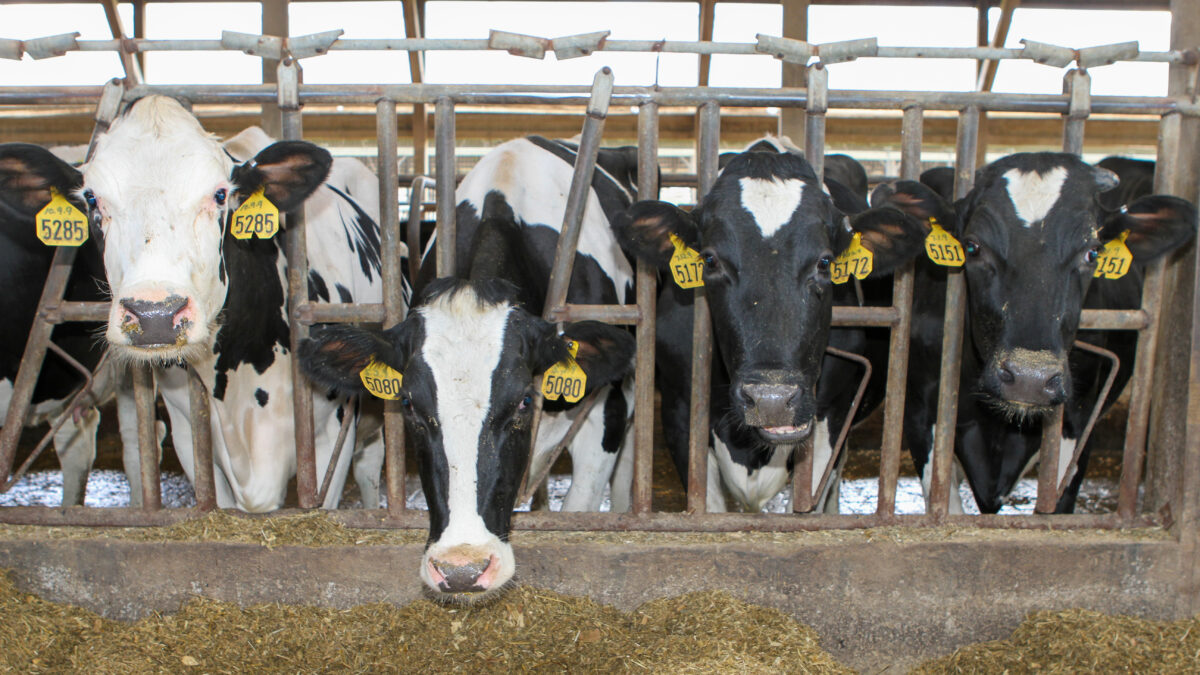Don 't Be 'Cowed '
Guest Author
Special Contributor to FB.org

photo credit: Alabama Farmers Federation, Used with Permission
Guest Author
Special Contributor to FB.org
Husband and wife environmentalists Denis Hayes and Gail Boyer Hayes take to bashing beef and dairy in their new book "Cowed." Published this year, it attacks animal agriculture on multiple fronts – health and nutrition, food safety and cattle production.
The book also makes one of the most outlandish predictions that you 've ever heard. According to the authors, "If the human population grows another 50 percent, and everyone starts to eat as much beef as Americans, we will wipe out much of the rest of the animal world."
Ken Cook of the Environmental Working Group applauds this statement on the back cover by saying that the authors have mapped the destructive co-migration of earth 's two great conquering herds, humans and cows. You can believe this when you see cows grazing in New York 's Central Park or on the National Mall in Washington, D.C.
Nebraska has a lot of cows, 1.88 million, according to the latest statistics, but it also was home this spring to a half million sandhill cranes along the Platte River. The cranes stop to fatten up on corn kernels left behind in farm fields before migrating north again. Nebraska is second in the nation in number of cattle and calves, but they don 't seem to be crowding out the cranes.
The Hayes would have you believe that all cattle operations are big, factory farms. Nebraska has 20,000 beef cow operations, the average herd size is 94 head and only 770 are larger than 1,000 head of cattle.
Big is always bad to critics of agriculture, even though economies of scale are accepted for most other industries. The complaints about cows in the book have all been heard before. American restaurants served 9 billion hamburgers last year, 3 percent more than a year earlier. Take that as a vote of confidence in beef.
In fact, there is a lot of positive news about beef to reassure consumers. Recreational runners are among the fittest Americans, and Runner 's World magazine includes beef in its nutrition advice and recipes for runners. It cited a review of 76 existing studies published in the Annals of Internal Medicine that found no association between saturated fat and heart disease, a departure from previous thinking. Runner 's World reminded runners that red meat contains iron, zinc and protein and is right for a healthy diet.
The authors of "Cowed" connect a virulent form of E. coli bacteria with what they call factory farming, which in their view is a feedlot used to finish cattle. However, the Department of Agriculture says the prevalence of E. coli O157:H7 is not affected by the production system. USDA 's Food Safety and Inspection Service (FSIS) samples ground beef and, according to its data, this strain occurs at a rate of less than one quarter of 1 percent. FSIS says it is rare for the strain to find its way into meat products, and the sale of those products is prohibited. Safe handling and proper cooking also reduce the risk of spreading E. coli or becoming infected.
The authors claim they aren 't against eating beef; they just want Americans to eat less. That 's up to consumers who shouldn 't be cowed or misled by critics of America 's livestock industry.
Stewart Truelsen, a food and agriculture freelance writer, is a regular contributor to the Focus on Agriculture series.
Top Issues
VIEW ALL